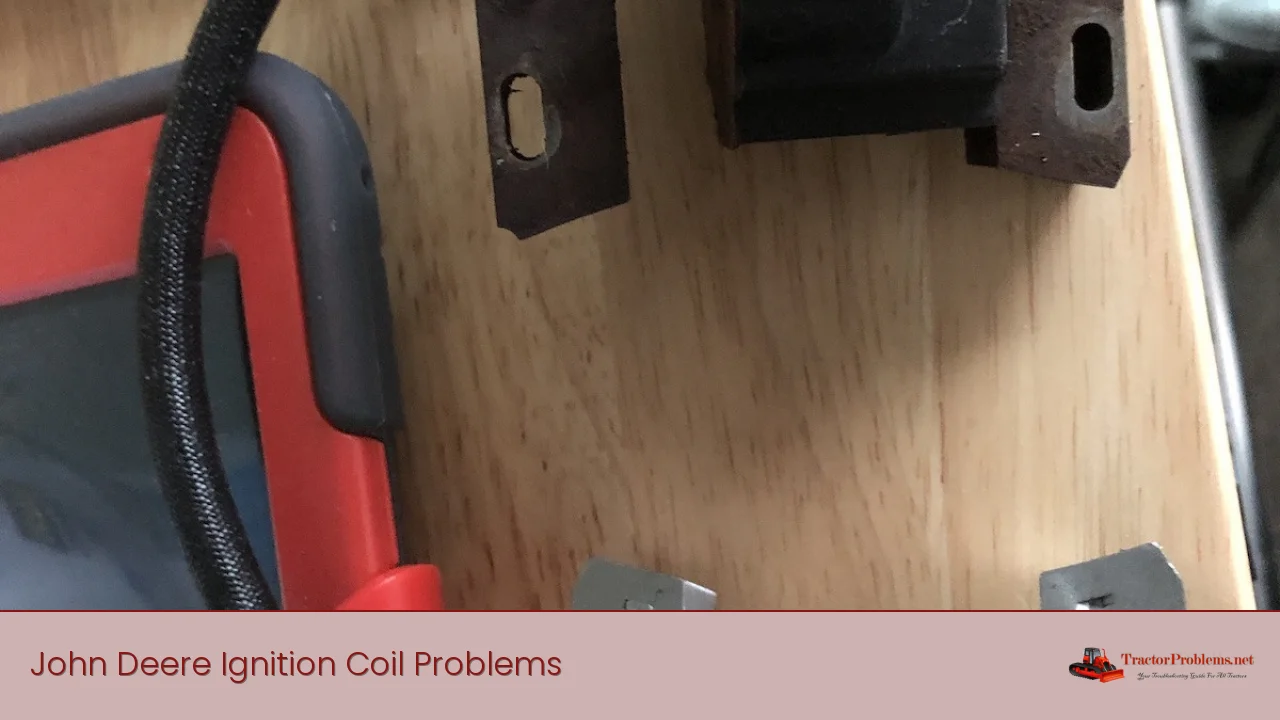John Deere ignition coils are essential components of a tractor’s engine, and their proper functioning is essential for a smooth and efficient operation. However, due to prolonged use and exposure to the elements, John Deere ignition coils can suffer from a variety of issues, from faulty wiring to corrosion. This comprehensive guide provides useful tips and advice on how to troubleshoot and fix John Deere ignition coil problems, helping you maintain and repair your tractor for optimal performance.
Troubleshooting John Deere Ignition Coil Problems
John Deere ignition coils are essential components of a tractor’s engine, and their proper functioning is key to an efficient and smooth operation. But due to prolonged use and exposure to the elements, these coils can suffer from a range of issues, from faulty wiring to corrosion. If youâre experiencing problems with your John Deere ignition coil, this guide will provide you with useful tips and advice on how to troubleshoot and fix the issue. With the right information and tools, you can easily maintain and repair your tractor for optimal performance.
| SECTION | DESCRIPTION |
|---|---|
| 1. Signs of Ignition Coil Problems | Identify the most common signs of ignition coil problems on a John Deere tractor. |
| 2. Troubleshooting Tips | Learn useful tips and advice on how to troubleshoot and diagnose John Deere ignition coil problems. |
| 3. Ignition Coil Replacement | Understand the process of replacing the faulty ignition coil on a John Deere tractor. |
Faulty Wiring
Faulty wiring is one of the most common John Deere ignition coil problems. It can be quickly identified and resolved by checking the connections to the coil, inspecting the wiring for signs of damage or corrosion, and replacing any damaged or corroded wires. John Deere ignition coil problems caused by faulty wiring can be easily identified and fixed by inspecting the connections and replacing any damaged or corroded wires.
Corrosion
Corrosion is another common John Deere ignition coil problem that can cause the engine to misfire. Experienced mechanics will inspect the wiring and connections for signs of corrosion, such as discoloration or rust, and replace any corroded parts with new ones. John Deere ignition coil problems caused by corrosion can be quickly identified and resolved by inspecting the wiring and connections for signs of corrosion and replacing any corroded parts.
Failing Coil
A failing coil is another issue that can affect John Deere ignition coils. This problem can be difficult to diagnose, and it may require the help of an experienced mechanic to identify and resolve the issue. John Deere ignition coil problems caused by a failing coil can be difficult to diagnose, requiring the help of an experienced mechanic to identify and resolve the issue.
Key Takeaways for Troubleshooting John Deere Ignition Coil Problems
- Faulty wiring is one of the most common John Deere ignition coil problems and can be quickly identified and fixed by inspecting the connections and replacing any damaged or corroded wires.
- Corrosion can also cause John Deere ignition coil problems and should be inspected for by experienced mechanics and any corroded parts replaced.
- A failing coil is another issue that can affect John Deere ignition coils and may require the help of an experienced mechanic to identify and resolve the issue.
The Benefits of Understanding John Deere Ignition Coil Problems
Knowing how to identify, troubleshoot, and fix John Deere ignition coil problems can save time and money. Having an understanding of the most common John Deere ignition coil issues can help you pinpoint the source of the problem and resolve it quickly, avoiding costly repairs or replacements. Additionally, being able to diagnose John Deere ignition coil problems can help prevent further damage and ensure the smooth operation of the engine. Taking the time to learn about John Deere ignition coil problems can help you save time, money, and hassle in the long run.
